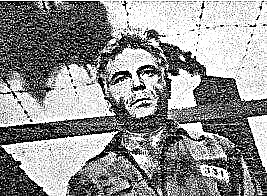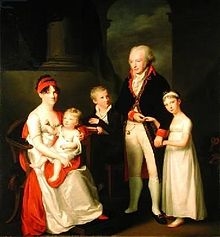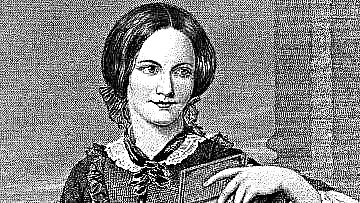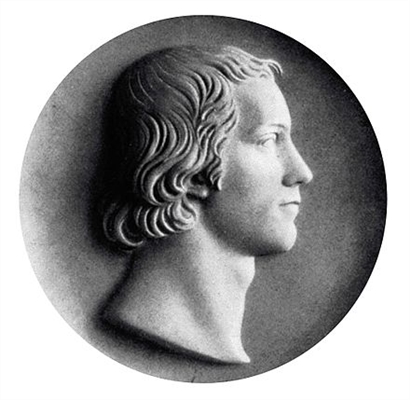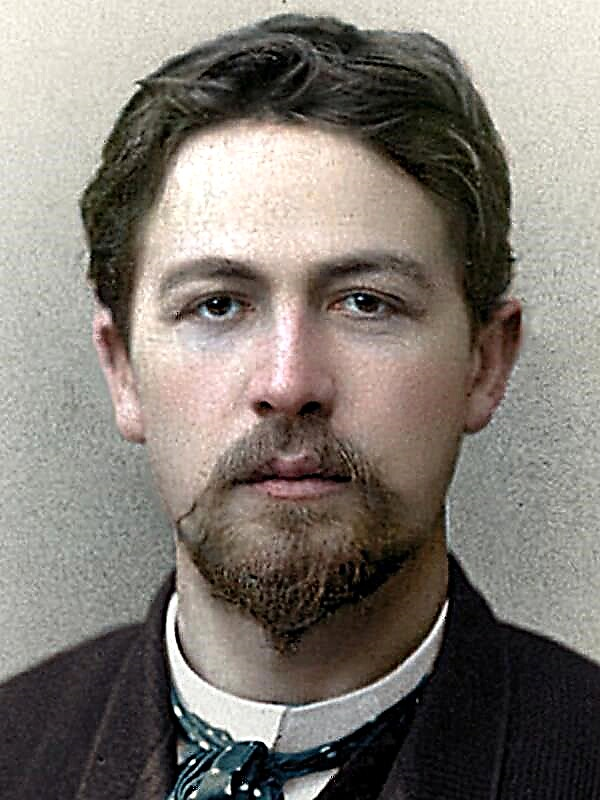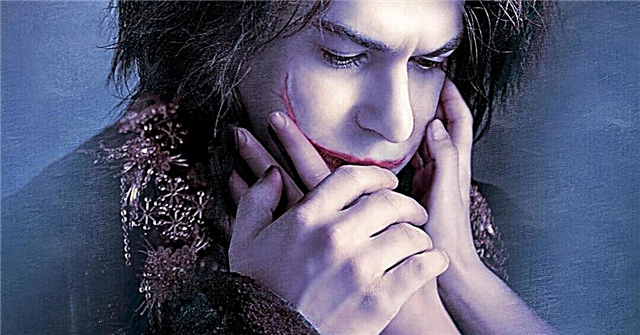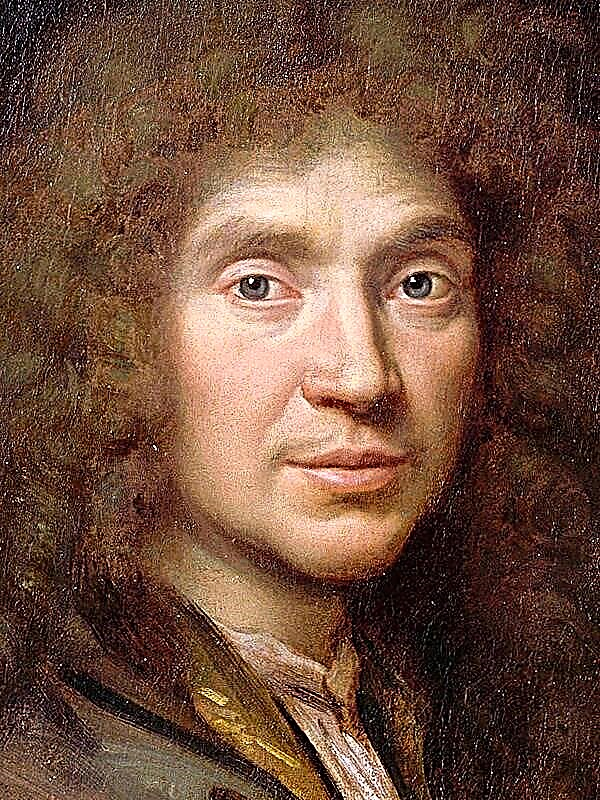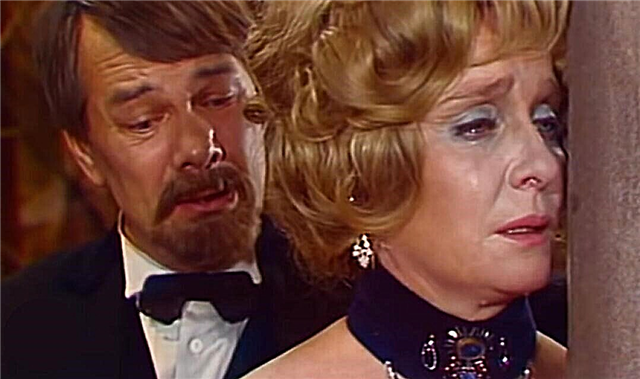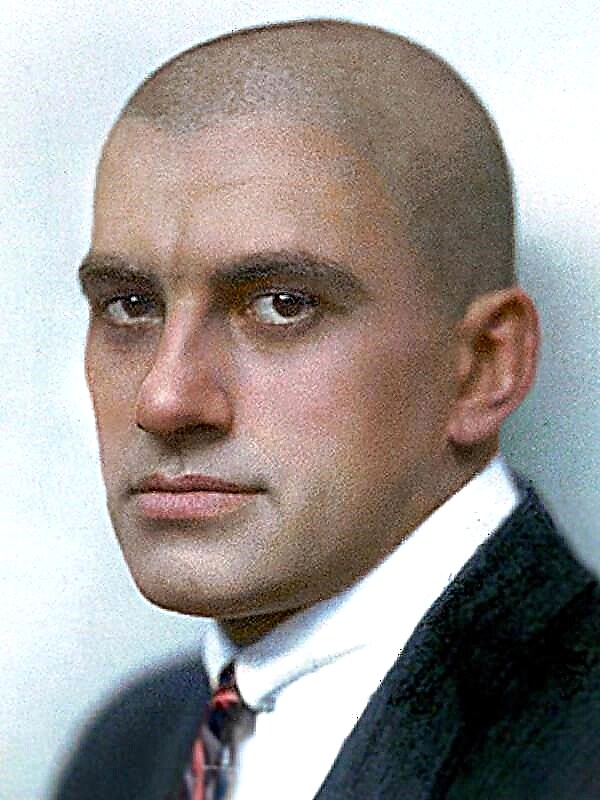"Sandro from Chegem" - a cycle of 32 stories united by a place (the village of Chegem and its environs, as the closest, say, the regional center Kungursk or the capital city of Mukhus (Sukhumi), and the distant ones - Moscow, Russia, etc.), by time (XX century - from the beginning to the end of the seventies) and heroes: residents of the village of Chegem, in the center of which are the Khabug clan and Uncle Sandro himself, as well as some historical characters from the time of Uncle Sandro (Stalin, Beria, Voroshilov, Nestor Lakoba, etc.).
Sandro Chegemba, or, as he is usually called in the novel, Uncle Sandro, lived for almost eighty years. And he was not only beautiful - an unusually noble old man with a short silver head of hair, a white mustache and a white beard; tall, slender, dressed with some kind of opera solemnity. Uncle Sandro was also famous as one of the most fascinating and witty storytellers, a master of table management, like a great host. There was something to tell him about - Uncle Sandro's life was a chain of incredible adventures, of which he usually came out with honor. In full measure, Sandro began to show his courage, mind, powerful temperament and a tendency to adventurous adventures even in his youth, when, becoming the princess's lover and wounded by his rival, he used the caring princess at first, and then just the ardent custody of the princess. In the same period of his life (the times of the civil war in Abkhazia) he had to spend the night somehow with an Armenian tobacco man. And that very night the armed Mensheviks rushed into the house with a robbery, which they, as ideological people, called expropriation. Burdened by his family, the tobacco worker was counting on the help of a young daredevil, Uncle Sandro. And Sandro did not drop himself: combining threats and diplomacy, he reduced the raid almost to a guest house with a drink and a snack. But what he could not do was prevent the robbery: the forces were too unequal. And when the Mensheviks took away four of the five bulls of the tobacco, Sandro was very sorry for the tobacco, realizing that with one bull he could no longer support his farm. It makes no sense to have one bull, moreover, Sandro owed just one person to the bull. And in order to maintain his honor (and returning the debt is a matter of honor), as well as being in line with the harsh historical reality, Sandro took the last bull with him. True, he promised that the unfortunate tobacco man would receive all kinds of help in everything else and subsequently kept his word (“Sandro from Chegem”).
Uncle Sandro generally always tried to live in harmony with the spirit and laws of his time, at least outwardly. Unlike his father, the old Khabug, who allowed himself to openly despise the new authorities and orders. Once, as a very young man, Khabug chose a place in the mountains, which later became the village of Chegem, set up a house, bred children, built a farm and was the most respected and respected person in the village in old age. The old Khabug perceived the emergence of collective farms as the destruction of the very foundations of peasant life - ceasing to be a master on their land, the peasant lost his involvement in the secret of the fertility of the land, that is, in the great mystery of the creation of life. Nevertheless, the wise Khabug joined the collective farm - he considered the preservation of the clan his highest duty. In any conditions. Even if city idiots seized power (“The Story of the Mule of Old Khabug”, “The Story of the Prayer Tree”). Or outright robbers like Bolsheusov (Stalin). Namely, as a robber, a young expropriator Stalin appeared once before Uncle Sandro in his childhood. Having robbed the ship, and then leaving with the loot from the chase, killing all the witnesses, and at the same time his companions-in-arms, Stalin suddenly came across a boy grazing cattle. It was dangerous to leave a witness alive, even such a small one, but Stalin did not have time. He was in a hurry very much. “If you say about me, I will kill you,” he threatened the boy. Uncle Sandro remembered this episode all his life. But it turned out that Stalin also had a good memory. When Sandro, already a well-known dancer in the ensemble of Plato Pantsulay, danced with the ensemble during the night feast of the leaders and faced the greatest and most beloved leader, he suddenly darkened, asked: “Where could I see you, a horse?” And the pause that followed was perhaps the worst moment in Uncle Sandro’s life. But he was found: "They shot us in the cinema, Comrade Stalin" ("Feast of Belshazzar"). And the second time, when the leader went fishing, that is, he sat on the bank and watched as Uncle Sandro, specially trained for this, blown trout for him in the stream, he again became concerned about the question: “Where could I see you?” “We danced before you.” - “And before?” - "To the cinema". And again, Stalin calmed down. He even gave Uncle Sandro warm Kremlin pants. And in general, according to Uncle Sandro, that fishing may have played a decisive role in the fate of his people: feeling sympathy for this Abkhazian, Stalin decided to abolish the deportation of this nation, although the trains were already ready at Eshera and Kelasuri stations (“Uncle Sandro and his favorite ").
But not only Stalin crossed paths of his uncle. Uncle Sandro helped in the hunt and Trotsky. He was among the favorites of Nestor Lakoba, and even before the revolution he met once with the Prince of Oldenburg. The prince, inspired by the example of Peter the Great, decided to create a living model of an ideal monarchical state in Gagra, setting up workshops, cultivating a special style of human relations, decorating the local places with parks, ponds, swans and other things. It was the missing swan that brought Sandro to the prince, and they had a conversation about this, and the prince gave Uncle Sandro the Zeiss binoculars (“Prince of Oldenburg”). This binocular played a large role in the life of Uncle Sandro. He helped to discern the essence of the new government and, as it were, to work out the behavior models necessary in the conditions of the coming life. With the help of this binoculars, his uncle discovered the secret of a wooden armored car, a formidable weapon of the Mensheviks in the upcoming battles with the Bolsheviks, being built in the village on the Kodor River. And when Sandro reached the Bolsheviks at night to tell the commissar about the secret of the Mensheviks and give advice on how to confront formidable weapons, the commissioner, instead of listening with attention and gratitude to what Uncle Sandro said, suddenly drew his gun. And because of the complete nonsense - the lash, which Uncle Sandro patted on the bootleg, did not like. Sandro was forced to save his life by flight. From which he made the right conclusion: that the power will be, firstly, cool (just that, right behind the gun), and secondly, bad, that is, ignoring clever advice ("The Battle of Kodor"),
And yet, Uncle Sandro realized that the initiative in the new life is punishable, and therefore, becoming a collective farmer, he did not particularly exhaust himself in public works. He preferred to show his other talents - a joker, a narrator, and partly an adventurer. When it was discovered that the old walnut, the prayer tree in their village, made a strange sound upon impact, partly reminiscent of the word “kumkhoz” and thus as if hinting at the inevitability of joining the collective farms, then as a guardian and partly a guide in this historical and natural the phenomenon was none other than Sandro. And it was this tree that played a sad and useful role in its fate: when the local Komsomol members burned the tree in an anti-religious outburst, the skeleton of an unknown person fell out of it. Immediately there was an assumption that this was a charred corpse of an accountant who had recently disappeared with money and that Sandro had killed him. Sandro was taken to the city and sent to prison. In prison, he stayed with dignity, and the accountants were soon found safe and sound. But during the detention, uncle met with Nestor Lakoba, the then head of Abkhazia, who was visiting the district center. During the feast that accompanied this meeting, Sandro flashed a dancer with his talents. And the admired Lakoba undertook to arrange him into the famous song and dance ensemble of Plato Pantsulay. Uncle Sandro moved to Muchus (The Story of the Prayer Tree). Once he called his father for advice, to buy him, crowded with his daughter and wife in a communal apartment, or not to buy the beautiful house offered by the authorities with a garden. The fact is that it was a house of the repressed. Old Khabug was outraged by the ethical deafness of his son. “In the old days, when the bloodthirsty was killed, the body was brought to relatives without touching a button on his clothes and things; and now they are killing the innocent, and things are shamelessly divided among themselves. If you go for it, I won’t let you go to my house anymore. It’s better for you to leave the city, since such a life has gone here. Pretend to be sick, and you will be released from the ensemble, ”then said the old Khabug to his son (“ The story of the mule of old Khabug ”).
So Uncle Sandro returned to the village and continued his village life and, raising the beautiful daughter Tali, the darling of the family and all of Chegem. The only thing that relatives and fellow villagers might not like was the courtship of the half-breed Bagrat from a neighboring village. Not about such a groom for Tali grandfather dreamed. And on the day that was supposed to be a triumph for both Tali herself and her entire family, the day she won the tobacco picker competition, just a few minutes before the awarding ceremony for her gramophone, the girl left for a minute ( change clothes) and disappeared. And it became clear to everyone - she fled with Bagrat. The villagers rushed in pursuit. The search lasted all night, and in the morning, when traces of the fugitives were discovered, the old hunter Tendel examined the clearing where the lovers stopped, and proclaimed: "We were going to shed the blood of the kidnapper of our girl, but not her husband." - "Managed?" - they asked him. "And how". And the pursuers with a clear conscience returned to the village. Khabug struck out of his heart a standing darling. But a year later, a rider from their village, where Bagrat and Tali now lived, jumped to their yard, shot twice in the air and shouted: "Our Tali gave birth to two boys." And Khabug began to think how to help his beloved granddaughter ... ("Tali is a miracle of Chegem"),
However, we must admit that the girl was affected by the blood of her parents, for the story of Uncle Sandro's marriage was no less bizarre. A friend of Uncle Sandro and Prince Aslan asked for help in abducting the bride. Sandro naturally agreed. But when he met Aslan's darling Katya and spent some time with her, he felt in love. And the girl, too. Sandro did not even allow himself to admit to Aslan everything. The laws of friendship are holy. But the girl could not be released. Moreover, she believed Sandro, who said that he would come up with something. And then the decisive minute approached, and Sandro never came up with anything. Case and inspiration helped. The cutthroat Teymyr, hired to steal the girl Katie, did not bring Katya, but her friend, to the hijackers who had hidden. Confused the girls. But then he rushed to correct the mistake. Thus, in front of the kidnappers were two young girls. Then Sandro dawned on him, he took his friend to the side and asked if he was embarrassed by the fact that Endur’s blood was flowing in Katya’s veins. The prince was horrified - marrying the poor would have gotten away with him, and the situation with the alleged abduction of the second girl could somehow defuse itself, but appear before the parents with the endura bride ?! They will not survive such a shame. "What to do?" - in desperation asked the prince. “I will save you,” said Uncle Sandro. “I will marry Katya, and you take a second wife.” And so they did. True, soon Uncle Sandro found out that there was indeed Endur blood in his bride, but it was too late. Uncle Sandro bravely endured this blow. And it really was a blow. The Abkhazians lived peacefully with a variety of nations - with the Greeks, Turks, Georgians, Armenians, Jews, Russians, and even Estonians, but they were afraid and did not like Endurs. And they could not overpower it. Endurians are such a very, very similar nation to Abkhazians - with one language, way of life, customs, but at the same time - a very bad nation. Endurians want to take power over all real Abkhazians. Once, the narrator himself, trying to challenge Uncle Sandro, who claimed that the Endurs had seized all the power in Abkhazia, decided to go through the offices of a very high institution and see who was sitting in these offices. And at that moment, all the people he saw in the offices seemed to his heated gaze by the Endurs. A very contagious disease turns out to be ("Snitching, or the Endurian Riddle").
... Even in his youth, realizing that this power was serious and for a long time, Uncle Sandro intuitively chose the life style that would allow him to live his life as he pleases (life is more important than political passions) and at the same time not change himself, covenants their ancestors. And he did it with brilliance. In whatever situations, sometimes very, very ambiguous, his life did not put, never once did Uncle Sandro drop his dignity. Never when, on Lakoba’s instructions, at night with a gun and a covered face penetrated the room of the venerable old man Logidze in order to find out for him for the new authorities the secret of making famous Logidze soft drinks; never when he brought to Moscow a mountain of “unofficial parcels-gifts” from the responsible persons of Abkhazia to the more responsible persons in Moscow. Not when I got for my non-traveling writer-nephew (who just described Uncle Sandro's life) the necessary document that would have saved his nephew from the machinations of the Ideological Overseers and from the KGB. But it was difficult to do this: the person who had access to the necessary document, flatly refused to provide it, and Uncle Sandro had to help this person in the grief that suddenly fell on him - to look for his beloved dog that disappeared without a trace. Of course, Uncle Sandro found the dog and received the necessary papers. “Where did you find the dog?” Uncle Sandro asked his nephew, and he answered with great carelessness. “Where he hid, there he found,” was the answer (“Uncle Sandro and the end of the goat-tour”). Not only by deed, but also by wise advice he helped his nephew: “You can write anything you want, but do not go against the line; do not touch the line, they really do not like it. "
Secretly (and not too secretly) despising the mental abilities of the new government - in this, by the way, he could and found like-minded people even among representatives of the ruling strata in Abkhazia - Uncle Sandro always enjoyed the respect and disposition of these very authorities. In general, Uncle Sandro knew how to get along with everyone - from wise Chegem old-timers to outright adventurers and half-mafia. There was something in the character of Uncle Sandro that made him related to a variety of characters: with the indomitable bully and wit, the old Chegeman Kolcheruk, and with the careless reveler-city dweller, tobacco man Kolya Zarhidi, and with the Abkhazian lover-Kazanova Marat, and with the person in the novel the highest echelons of the current government, sybarite and crafty clever Abesalomon Nartovich. And even with the semi-mafia bartender Adgur, a product of our later reality, who managed to preserve the mountain ideas of partnership, hospitality and the laws of honor. And with dozens of characters next to Uncle Sandro in the pages of the Fazil Iskander epic. In other words, the pages of this book contain Abkhazia and the Abkhazian character of the 20th century.

